Conferences
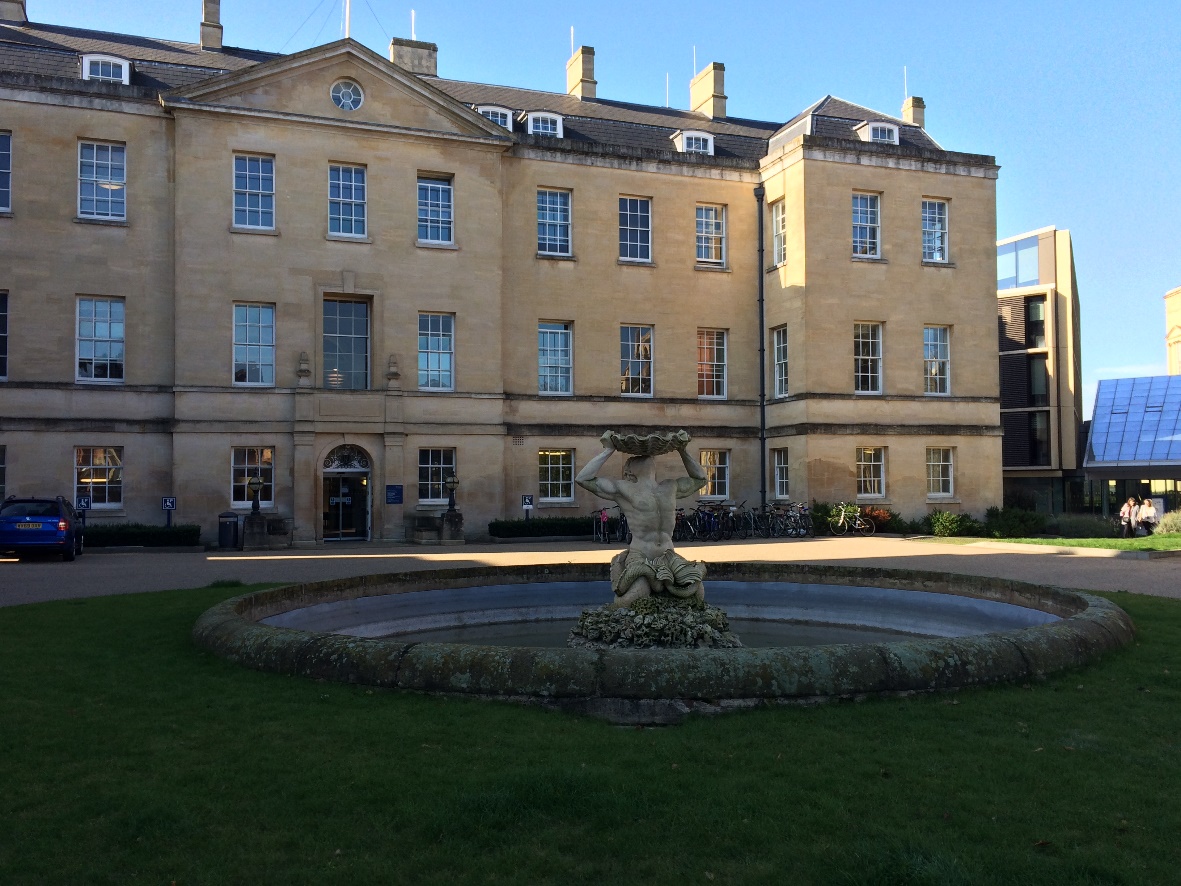
The Humanities Building, Radcliffe Observatory Quarter, Oxford, Image by Claire Selby. CC BY SA ND
CLASP has organised a number of notable workshops and conferences. These have introduced the new metrics system to students that help them interpret rhythm through training, hosted eminent guest speakers who have provided papers for publication and explored the themes of the project in new ways.
Online Colloquium: The Anglo-Latin Poetic Tradition: Sources, Transmission, and Reception
Corpus Christi College, Oxford. By kind permission CC BY Colleen Curran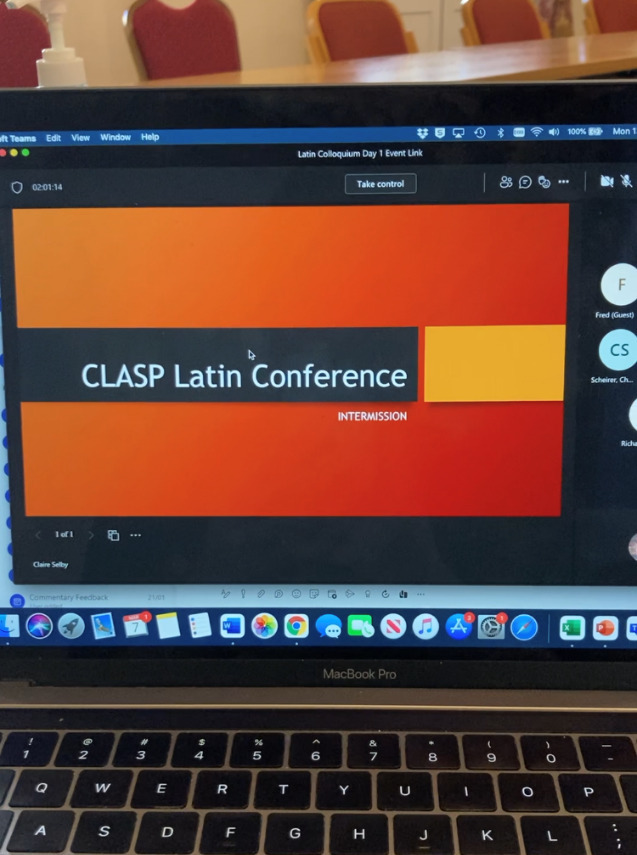
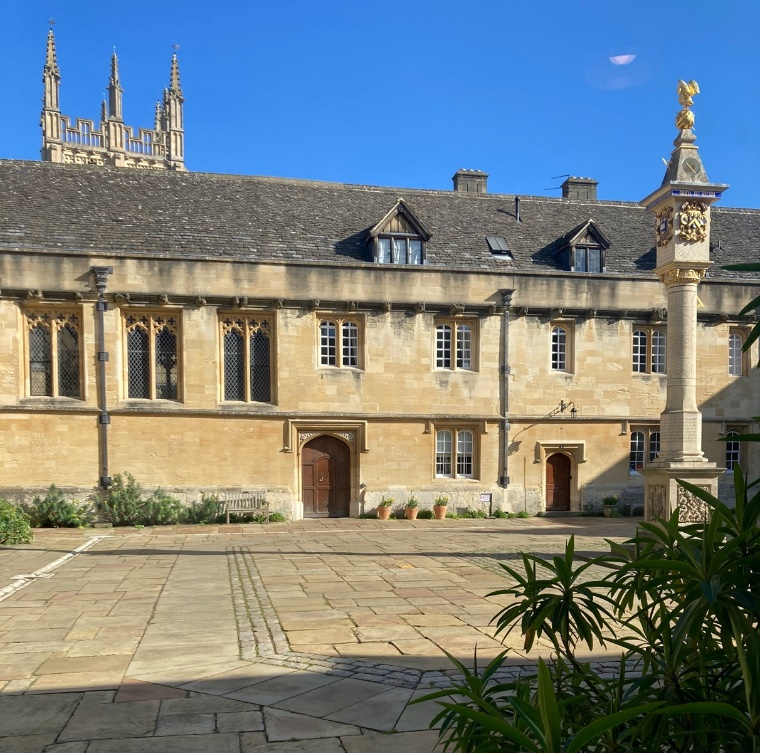
Programme
7/8 March 2022 – Oxford
This two-day online event drew together experts in Anglo-Latin verse from both sides of the Atlantic for a fascinating exploration of new thought as well as an initial presentation of the outstanding functions of the CLASP interrogatory tool.
The programme shows the range of the topics covered and the ample opportunity for discussion provided, of which the participants took full advantage.
The papers from this event will be combined with others to complete the forthcoming essay collection that, building upon previous seminal studies, will explore both major and other lesser-known authors, sources, and works to highlight the multifaceted intellectual culture that gave rise to this vibrant literary period.
Anglo-Saxon Metre and Literary Studies Workshop
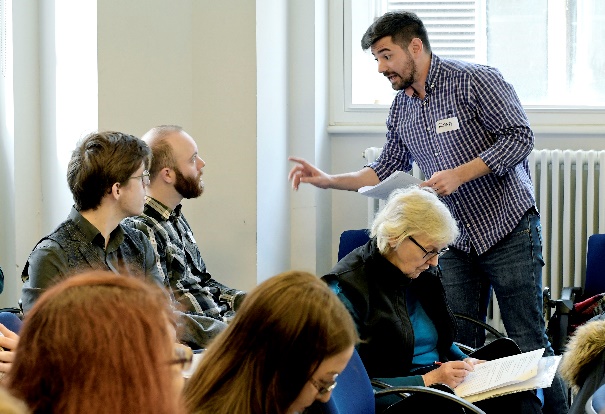
Owner, CLASP. Photographer David Fleming. Licence: Cannot be re-used without permission
29th October 2019 – Oxford
The sessions at this workshop introduced the project’s new metrics system to students with presentations and interactive sessions. The system helps students interpret rhythm, stress, pronunciation and metre with the addition of incremental phonetic markers developed by project researcher, Dr. Pascual.
Anglo-Saxon Metre and Literary Studies Conference
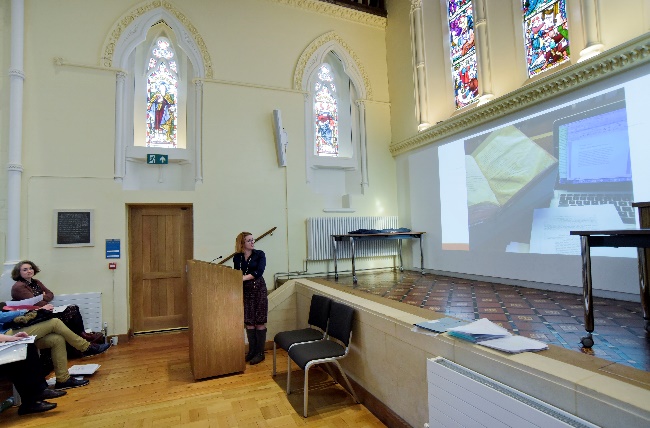
Owner, CLASP. Photographer David Fleming. Licence: Cannot be re-used without permission
30th October 2019 – Oxford
Eminent international speakers joined the CLASP project team to give memorable presentations on aspects of the project and the latest developments in the study of Anglo Saxon poetry.
Project Final Conference: Presentation and discussion of the impact of CLASP
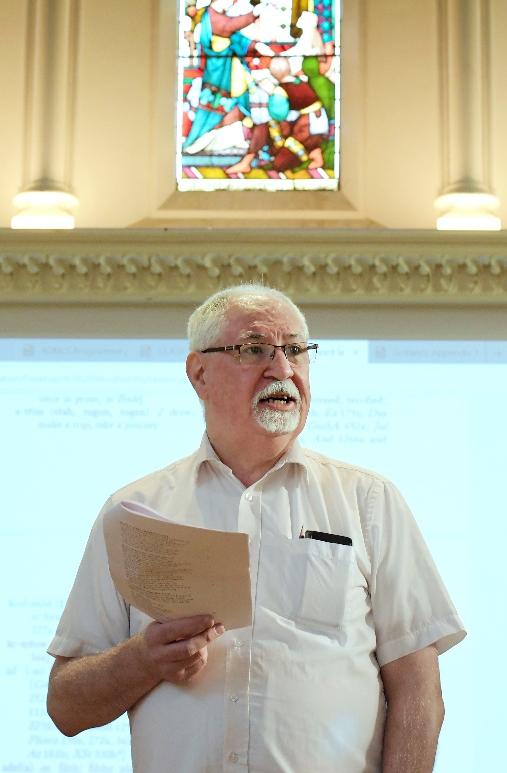
Owner, CLASP. Photographer David Fleming. Licence: Cannot be re-used without permission
Planned for Spring 2021
The conference presents the success of the Consolidated Library of Anglo-Saxon Poetry project in delivering a digitised free-access resource of the most comprehensive collection of these works to date. It includes demonstrations of the unique aspects of the project’s legacy, including: How to access CLASP by system designer Nick White; Introducing the complete set of Modern Translations and How to use the Dictionary of Anglo-Saxon Poetry by Andy Orchard; Using the Metricator™ phonetic symbols system for personal study by Rafael Pascual; Ancient but New - Latin manuscripts uncovered by Colleen Curran and; Data for Detective Success by Rachel Burns.